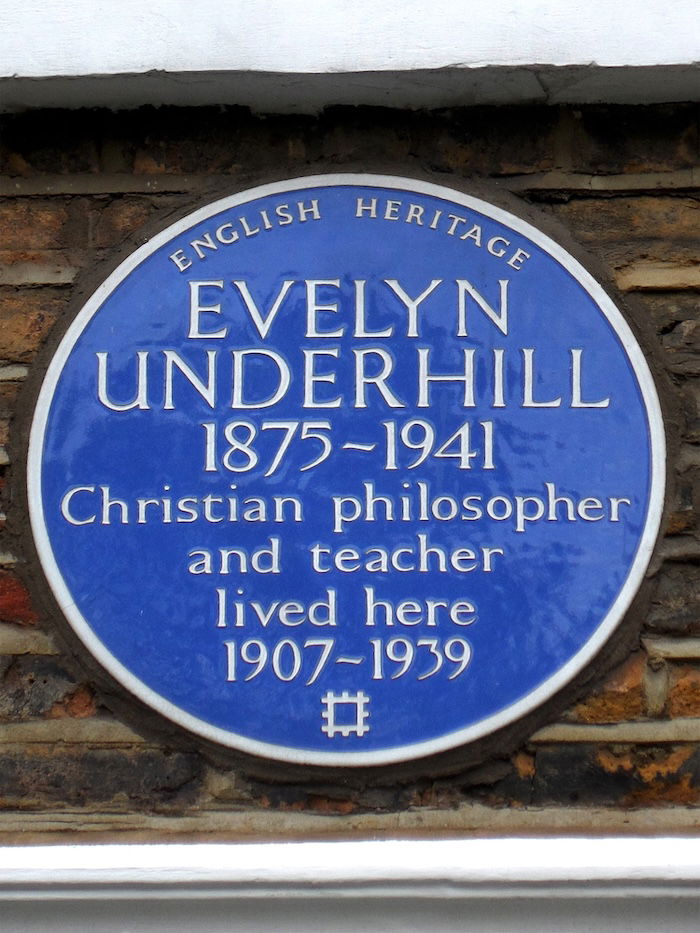In popular history, there are few more challenging subjects than the supernatural and religious beliefs of the past. Even the most open-minded modern historian or reader of history can struggle as we try to engage with unfamiliar thought-worlds, or cultures where supernatural realities were felt to permeate daily life in ways now unfamiliar to us.
This year marks the 150th anniversary of the birth of a writer who sought to interpret for her own time a form of spirituality which can be especially difficult for a modern Western audience to grasp. Evelyn Underhill, born on 6 December 1875, played an influential role in introducing readers to key works of medieval and early modern mystical and visionary experience.
Underhill was the author of numerous popular books on the spiritual life, her most famous work being Mysticism (1911). She came to these subjects via an early attraction to spiritualism, ritual magic, and the occult – not uncommon in intellectual circles in the years around the First World War – though later she became a committed Christian. Nonetheless, her work reflected a broad-minded outlook. Her range of interests embraced a wide European perspective – German, Italian, and Spanish mystics as much as English-speaking ones – and also looked further afield, to Islamic and Hindu writers. Clear and accessible, with a lively turn of phrase, her books offered a new perspective on spirituality to a Britain profoundly shaken by the horror of the war.
Though not a professional academic, Underhill’s approach was thorough and scholarly. Her editions of two important Middle English works, The Cloud of Unknowing and Walter Hilton’s Scale of Perfection, were standard texts for many years. She lectured and led retreats in an area where it was still very unusual for women to do so: in 1922 she became the first woman – in the 700-year history of the university – to be invited to lecture on theology at Oxford.

Her books helped to popularise the work of writers such as Hildegard of Bingen and Julian of Norwich – now among the best-known and most respected figures of the Middle Ages, but in the early 20th century far from the canonical authors they have since become; scholarship was in its early stages, with new manuscripts still being discovered. (The ‘Short Text’ of Julian’s Revelations only came to light in 1910.)
It was not unusual for such texts – especially those by female authors – to be dismissed as fanatical or sentimental, products of a religious culture which to a British audience seemed too Catholic, too foreign. Compared to some of her contemporaries, Underhill’s approach is a breath of fresh air. She treats them with great sympathy and imagination: it was important, she wrote, to engage with historical people as living individuals, not ‘stuffed specimens exhibited against a flat tapestried background, more or less picturesque, but always thought of in opposition to the concrete thickness of the modern world’.
She tried to strike a balance between understanding these writers within their context and exploring spiritual experiences which she considered to be cross-cultural. Though the later explosion of scholarship on these texts must qualify some of her interpretations, there is still much of value in her refreshingly frank style. She worked to translate into the idiom of her day expressions of a longing she believed to be timeless. Here’s a characteristic passage from her 1914 book Practical Mysticism, intended not for religious specialists but, as its endearing subtitle explains, ‘For Normal People’:
Eternity is with us, inviting our contemplation perpetually, but we are too frightened, lazy, and suspicious to respond … The process involves a veritable spring-cleaning of the soul, a turning-out and rearrangement of our mental furniture, a wide opening of closed windows, that the notes of the wild birds beyond our garden may come to us fully charged with wonder and freshness, and drown with their music the noise of the gramophone within.
‘The noise of the gramophone’ is the language of 1914; medieval writers would have talked instead about resisting the ‘scattering’ of the mind through what Walter Hilton calls the ‘strobillynge [disturbance] of worldly busyness’. Today we would speak of the distractions of social media and the lure of doomscrolling. But the music of the wild birds might be heard in any place or time.
Eleanor Parker is Lecturer in Medieval English Literature at Brasenose College, Oxford.
Click the Source link for more details

